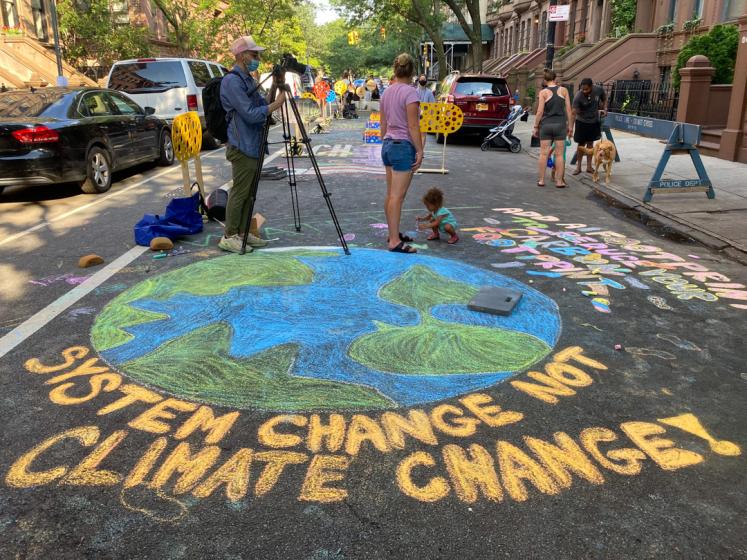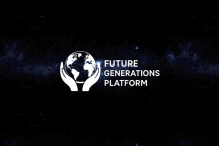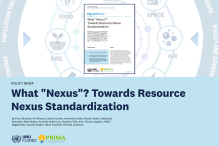We live in an era of rapid transformation. Digitalisation, geopolitical tensions, political instability, climate change, and pandemics are reshaping our world in increasingly unpredictable ways. Meanwhile, we continue to consume natural resources at a pace that would require 1.75 Earths to sustain, and we generate more waste than our recycling systems can manage. It doesn’t take deep analytical thinking to foresee the path these trends are leading us down. What it does require is strong research and evidence to guide how we can reshape the problematic systems driving these unsustainable patterns.
That is why my research on sustainability transitions is both timely and relevant.
While these are global challenges, their impacts are not equally distributed. Countries in the Global South are particularly vulnerable to climate shocks, global price fluctuations, and market disruptions. Local innovation systems in many of these regions are fragile, technology readiness levels remain low, and institutional capacity to absorb shocks is often limited.
My work was motivated by the urgent need to accelerate positive change toward sustainability in the Global South, focusing on one essential system: solid waste management. This system not only absorbs the pressures of population growth and overconsumption but also offers great potential to drive circular economy transitions. Using a systems thinking lens, I explore the structural inertia and feedback loops that slow down change, while identifying context-specific leverage points that can support long-term, meaningful transformation.
Key insights for policymakers and practitioners
One of the most important findings from my research is the need to reframe how we define “the problem”—and, in turn, what qualifies as a solution. Waste management in the Global South is too often approached through short-term, “low-hanging fruit” solutions—such as expanding dumpsites or increasing privatisation. While these measures may offer immediate relief, they risk locking the system into low-value cycles or generating negative externalities over time.
In the case of Ghana, my analysis shows that integrated interventions across the entire waste management value chain—from upstream source separation to midstream collection and downstream recovery—deliver far more effective and sustainable outcomes than isolated efforts.
Another key takeaway is the importance of strengthening local capabilities and applying rigorous criteria when selecting and adapting imported solutions. In the context of sustainability transitions, the traditional idea of “technological catch-up” is becoming increasingly outdated. Developing countries should not be seen as passive technology recipients, but as hubs of innovation where context-specific knowledge can be generated and scaled. Policymakers have a critical role to play in harnessing indigenous expertise and building locally grounded, self-sustaining solutions that are not dependent on donors or Global North actors.
The role of research institutions like UNU-MERIT
Research institutions have a multifaceted role to play in driving sustainable transitions. Beyond generating rigorous, policy-relevant evidence, they must create space for meaningful dialogue among researchers, practitioners, and policymakers. They also serve as bridges—translating academic insights into practical strategies that address the urgent challenges of our time.
At a moment when issues like climate change, poverty, water scarcity, and displacement are increasingly complex and interconnected, no single discipline or sector can respond effectively on its own. This makes the interdisciplinary and impact-driven approach of UNU-MERIT especially relevant.
UNU-MERIT is distinguished by its strong focus on evidence-based policymaking, interdisciplinary research, and commitment to real-world outcomes. These qualities position the institute to lead by example—producing actionable knowledge and fostering solutions that are scalable, inclusive, and context-sensitive.
A message for World Environment Day
World Environment Day is more than a date on the calendar—it is a call to action. This year’s theme on ending plastic pollution is especially urgent. The fact that we now have more microplastics in the ocean than stars in the galaxy highlights the scale of the crisis we face.
As I approach the conclusion of my PhD journey, my message to fellow researchers, students, and decision-makers is this: we can no longer treat environmental protection and sustainability as optional. These must be core to how we produce, consume, travel, govern, innovate, and live. Whether through systems-level thinking, smart policy reforms, or grassroots initiatives, sustainability is not a distant aspiration—it is a present-day responsibility.
As part of this broader research agenda, Maria Tomai will defend her dissertation titled “Sociotechnical Transitions Towards Circular & Sustainable Economies: The Case of Solid Waste Management in Ghana” on 20 June 2025 at 10:00. Learn more.



